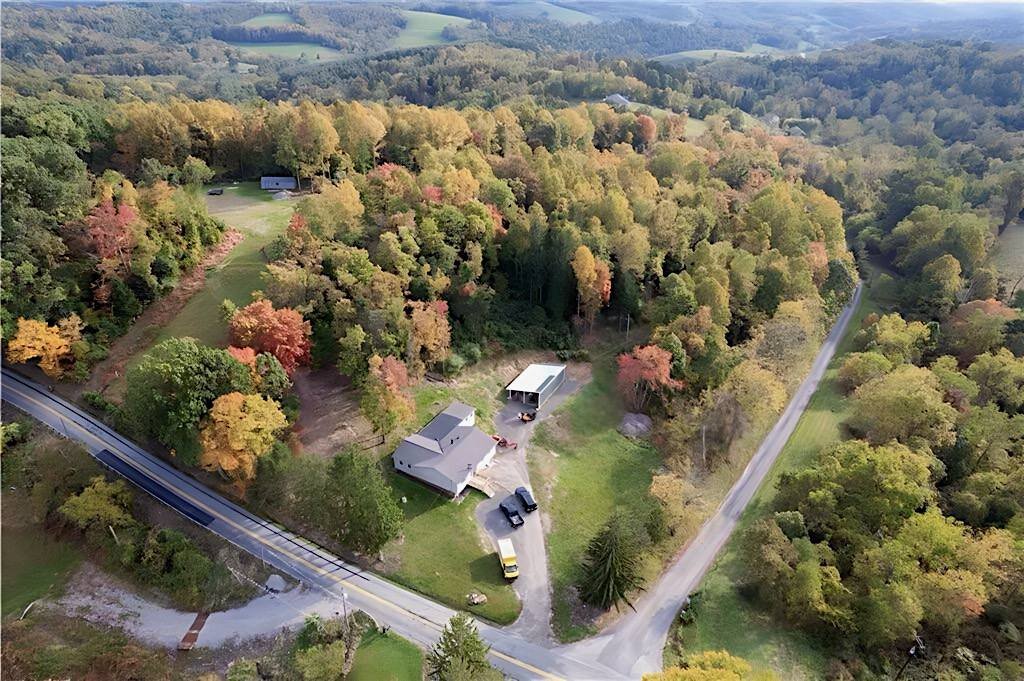
Choosing between suburban and city living is a significant decision for families, impacting their lifestyle, financial health, and overall happiness. In Pennsylvania, the contrasts between suburban areas and cities like Pittsburgh are particularly pronounced, offering distinct advantages and drawbacks. This article delves into the nuances of both living environments, focusing on factors crucial for families such as housing, education, safety, amenities, and community life.
Housing: Space vs. Convenience
Suburbs: More Space and Affordability
Suburban areas in Pennsylvania, such as Canonsburg and Washington, are known for their spacious homes and larger properties. Families often find that they can get more square footage for their money compared to city properties. This includes not only larger living spaces but also private yards and gardens, which are ideal for children and pets.
– Affordability: Generally, suburban homes are more affordable on a per-square-foot basis than city homes. This affordability extends to lower property taxes in some suburban areas compared to urban centers.
– Variety of Housing Options: Suburbs offer a mix of housing styles, from single-family homes to townhouses, providing families with more choices to fit their needs and budgets.
Cities: Proximity and Lifestyle
Living in the city, particularly in Pittsburgh, means being close to work, entertainment, and cultural amenities. This convenience is a significant draw for many families, despite the typically higher cost of housing.
– Convenience: Urban living offers shorter commutes and easy access to public transportation, which can be a substantial time-saver.
– Vibrant Neighborhoods: City neighborhoods often have a unique charm and vibrancy, with diverse dining, shopping, and cultural experiences right at your doorstep.
Education: Quality and Choice
Suburbs: High-Performing Schools
Suburban areas in Pennsylvania are often home to high-performing public schools, making them attractive for families prioritizing education.
– Public Schools: Suburbs like Upper St. Clair and Fox Chapel have some of the best public schools in the state, known for their strong academic programs and extracurricular activities.
– Private Schools: There are also numerous private and parochial schools in suburban areas, offering families a variety of educational choices.
Cities: Diverse Educational Opportunities
City living also offers excellent educational opportunities, though the quality can vary more widely.
– Diverse Options: Cities like Pittsburgh provide access to a range of educational institutions, including charter schools, magnet schools, and renowned private schools.
– Higher Education: Proximity to universities and colleges in the city can offer enrichment programs and additional resources for students.
Safety: Perception vs. Reality
Suburbs: Perceived Safety and Quiet
Suburban areas are often perceived as safer and quieter compared to urban environments, contributing to their appeal to families.
– Lower Crime Rates: Generally, suburbs have lower crime rates than cities, which can provide peace of mind for parents.
– Community Vigilance: Smaller communities can foster a sense of vigilance and mutual concern among residents.
Cities: Improving Safety Measures
While cities have historically higher crime rates, many urban areas, including Pittsburgh, have made significant strides in improving safety.
– Community Policing: Initiatives like community policing and neighborhood watch programs have been effective in reducing crime in many urban neighborhoods.
– Safety Initiatives: Cities often have more resources dedicated to public safety, including well-equipped police and fire departments.
Amenities and Lifestyle
Suburbs: Space and Nature
Suburban living offers a lifestyle closer to nature, with access to parks, trails, and outdoor activities that are perfect for family outings.
– Parks and Recreation: Suburbs often have extensive parks and recreational facilities, including sports fields, playgrounds, and community centers.
– Family-Friendly Activities: Activities such as hiking, biking, and local sports leagues are more accessible in suburban settings.
Cities: Cultural and Recreational Riches
City living provides access to a wealth of cultural and recreational amenities that can enrich family life.
– Cultural Attractions: Museums, theaters, galleries, and music venues are typically more accessible in urban areas.
– Dining and Shopping: A diverse array of dining and shopping options can offer unique experiences and conveniences not always available in the suburbs.
Community and Social Life
Suburbs: Tight-Knit Communities
Suburban areas often foster a strong sense of community, which can be beneficial for families seeking a supportive environment.
– Community Events: Local events, from farmers’ markets to holiday parades, help to build a sense of community and belonging.
– Neighborly Bonds: The quieter, slower pace of suburban life can facilitate stronger relationships with neighbors.
Cities: Diverse and Dynamic
City living offers a dynamic and diverse social environment, which can be enriching for families.
– Diversity: Urban areas tend to be more diverse, exposing families to different cultures, perspectives, and experiences.
– Social Opportunities: Cities provide numerous opportunities for socializing and networking through various clubs, organizations, and community groups.
Case Study: Pittsburgh vs. Canonsburg and Washington
Pittsburgh: The Urban Experience
Pittsburgh, Pennsylvania’s second-largest city, offers a compelling urban lifestyle with its rich history, cultural amenities, and strong economic opportunities.
– Economic Hub: Pittsburgh is known for its robust job market, particularly in healthcare, education, and technology sectors, making it a practical choice for working parents.
– Educational Institutions: Home to esteemed institutions like Carnegie Mellon University and the University of Pittsburgh, the city provides ample opportunities for educational advancement.
Canonsburg and Washington: Suburban Tranquility
Canonsburg and Washington represent quintessential suburban living, with their serene environments and family-oriented communities.
– Historic Charm: Both towns boast charming historic districts, offering a picturesque setting for family life.
– Access to Nature: Proximity to state parks and recreational areas provides ample opportunities for outdoor activities and family adventures.
Making the Decision: Key Considerations
When deciding between suburban and city living in Pennsylvania, families should consider the following factors:
– Priorities: Determine what is most important for your family—space and quiet, or convenience and cultural amenities.
– Budget: Assess your financial situation and how it aligns with the cost of living in either environment.
– Future Plans: Consider your long-term plans, including career prospects, children’s education, and lifestyle preferences.
Conclusion
Choosing between Pennsylvania’s suburbs and city living is a highly personal decision that depends on a family’s unique needs and priorities. Suburbs like Canonsburg and Washington offer spacious, affordable living with excellent schools and a strong sense of community. In contrast, urban areas like Pittsburgh provide convenience, cultural richness, and diverse educational opportunities. By carefully weighing the pros and cons of each option, families can find the ideal environment to thrive and grow.

About Rick Hodge
Transitioning from the coal industry and weld inspection to the realm of real estate, Rick has established ‘Rick Buys Homes’ with a mission to render homeownership attainable through rent-to-own arrangements. His dedication lies in assisting families in realizing the American Dream. Feel free to connect with him here.

